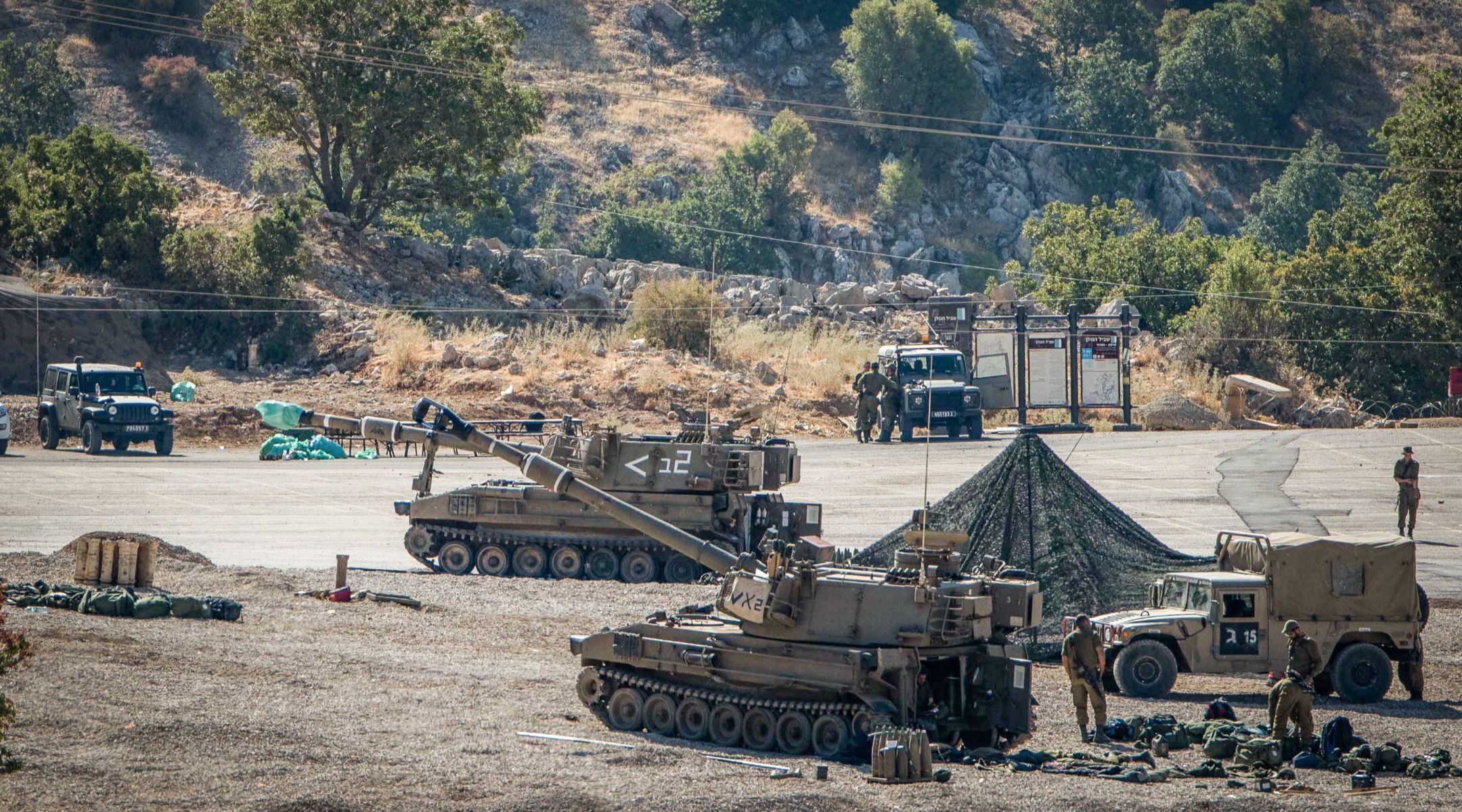 Israeli soldiers with their artillery unit on high alert seen near the Israeli-Syrian border, in the Golan Heights, on Aug. 25, 2019. (Basel Awidat/Flash90)
Israeli soldiers with their artillery unit on high alert seen near the Israeli-Syrian border, in the Golan Heights, on Aug. 25, 2019. (Basel Awidat/Flash90) This is a guide to Israel’s Coming Elections. This will be a usual feature on Rosner’s Domain until next Election Day, September 17. We hope to make it short, factual, devoid of election hype, and of he-said-she-said inside baseball gossip.
Bottom Line
Real challenges (defense, security) capture the headlines.
Main Political News
Iran, Syria, Lebanon and Gaza dominate the news. Netanyahu is criticized for being weak on Gaza, and for taking credit for Syria (that is, for talking about it publicly). Impact on the electorate: unknown. But a deteriorating security situation could make a unity government more likely.
The leader of the united Arab list declared that he might be willing to join a coalition, if his conditions are met. Among them: negotiations toward a two-state solution, a cancelation of Basic Law: The Nation, and economic development in Arab areas.
The court decided that two radical rightwing activists could not run for the Knesset, due to racism allegations.
A political and possibly legal fight over whether video cameras would be allowed in polling stations. The cameras are meant to prevent election fraud when the votes are counted. Likud leaders would like to have them in Arab areas (it is known that in these areas there are more cases of election fraud). The head of the election committee forbade cameras, insisting that without a specific low that addresses the issue there is no guaranteed right to place cameras where people vote.
Small right-wing parties, who aren’t likely to cross the electoral threshold, are pressured to quit the race. One already did, others expected to follow.
Developments to Watch
Security: Rockets and bombs change trajectories of elections. Not always in the expected direction. In 1992, stabbing attacks helped Yitzhak Rabin and the Labor Party. For years earlier, an attack on a bus to Jerusalem helped Likud.
Trump: The US President said 1. That he might publicize his peace plan before election day, and 2. That he could see a meeting with Iran’s president as a realistic goal. Both such developments could have great impact on Israel’s voters.
Right: Its numbers are inching up, but very slowly. This could be a sign that a 61-62 member coalition of the right is still possible.
The Blocs and Their Meaning
This week we offer two graphs.
The blocs. As you can see, the pro-Netanyahu bloc is slowly growing. The more recent the polls (the last three compared to last 5, 10 and 20), the slightly higher the number of expected seats.

The parties. As you can see, larger parties (Likud, Blue and White) have a momentum, while some smaller ones tend to lose seats.

A Party to Watch
The left-leaning Democratic Camp was launched with great fanfare, when Meretz, Labor’s Stav Shaffir, and former PM Ehud Barak joined forces. Barak placed himself as number 10 on the list, as if this is proof that the party will gain at least as many seats. But the polls do not predict such outcome. In fact, the Democratic Camp is losing traction. Here is a graph showing the numbers and the moving average for the Democratic Camp since it was announced in late July. Currently, the Camp is expected to get just a little more seats than Meretz without the merger.
























 More news and opinions than at a Shabbat dinner, right in your inbox.
More news and opinions than at a Shabbat dinner, right in your inbox.